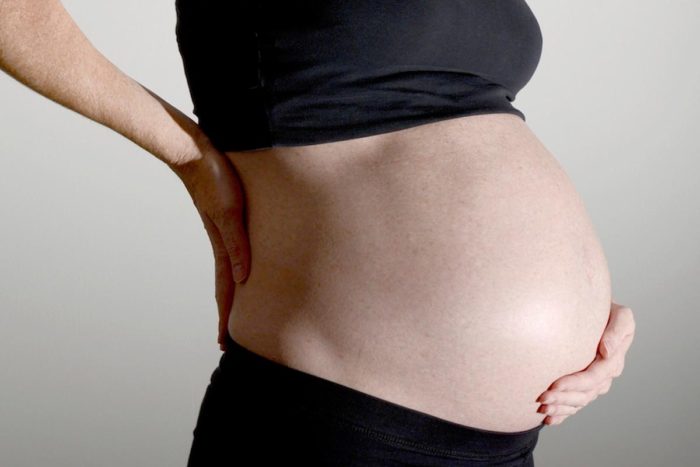Age has its advantages, even in pregnancy, study finds
A new study finds pregnant women 35 and older carry a lower risk of having babies with birth defects than younger women

Women 35 and older face increased risks for many pregnancy issues, but they appear to have an advantage in one regard. Namely, they have a lower risk than do younger women of having a baby with a major congenital problem—a physical defect that can involve the heart, brain, kidney and bones.
“Everyone, including my co-authors, were a little surprised at the findings,” says study author Katherine Goetzinger, MD, a Washington University fetal medicine specialist at Barnes-Jewish Hospital.
Advanced maternal age, normally defined as 35 and older, is a well-established risk factor for having a child with a chromosomal abnormality such as Down syndrome. However, few studies have looked at whether there is an increased risk for a major congenital problem in the absence of a chromosomal abnormality.
“As more women delay having children, they are faced with many increased pregnancy risks,” Goetzinger says. “Findings from this study may provide some reassurance for these women regarding the likelihood of having a normal child.”
Large-scale data collection
Researchers looked at data collected from more than 76,000 women during their routine second trimester ultrasound. They compared the incidence of one or more major congenital problems diagnosed at the time of ultrasound in women younger than 35 to that of women 35 and older. The investigators also examined the incidence of major brain, kidney, heart and central nervous system defects.
Advanced maternal age was associated with a 40 percent decreased risk of one or more major congenital problems, after controlling for other risk factors such as gestational diabetes and alcohol use. The incidence of kidney, brain and abdominal wall defects was lower in women 35 and older. The frequency of heart defects was the same in both maternal age groups.
The researchers presented their findings at the annual meeting of the Society of Maternal Fetal Medicine.
More research is needed to explain the differences, but Goetzinger speculates that women 35 and older may pay greater attention than younger counterparts to healthy behaviors during pregnancy, such as eating a healthy diet, exercising and taking prenatal vitamins.
“I hope this study opens the door for more research on how we can advise and care for women 35 and older who are considering pregnancy,” Goetzinger says.







